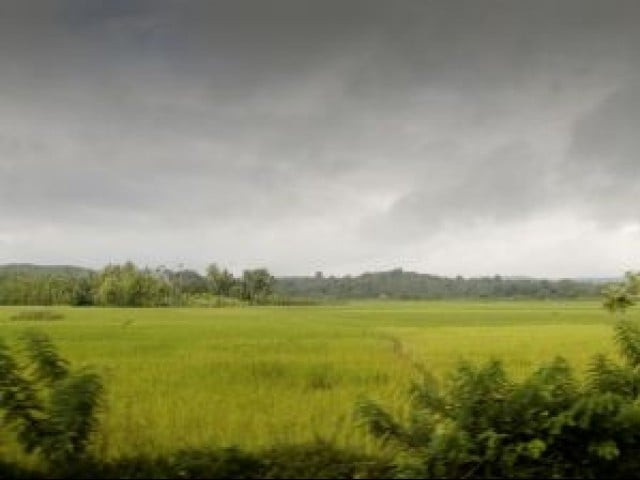Climatic change: Spontaneous urbanisation causing city to implode
Drainage system dates back to 20s, collapses under pressure of weather, debris

Drainage system dates back to 20s, collapses under pressure of weather, debris. PHOTO: FILE
After decades of neglect, Peshawar has now begun to display the symptoms of a sick city – ailments caused by rapid urbanisation and alarming climate changes. Unplanned construction has mushroomed across the city. Beyond the mud-slinging of politicos lies a problem deep embedded in the city’s unprecedented growth and its inability to take care of itself.
It has been five years since the city was last flooded. The vulnerable points are still the same and so is the magnitude of damage. Even the Provincial Disaster Management Authority agrees; Budhni bridge, Daman Afghani, Kharaka Daudzai, Mian Gujjar, Islamabad Koruna, Jala Bela, Mamoon Khatke, and Piyaray Shaghalay – the names do ring a bell. The question is why and how? The answer isn’t as simple.

An approximate 1,256 square kilometres accommodates an estimated population of 3,575,000 in Peshawar. This is in comparison to a population of 982,816 in 1998. The massive increase in the number of unplanned structures and the absence of building codes only tell one side of the story.
Ghosts of city’s past
The truth remains that inadequate strategies of the past are haunting the city today. It was planned in 1986 by Peshawar Development Authority with help from Gilmore Hankey Kirke Ltd. The city was sliced into mohallahs (neighbourhoods) – an obsolete division system with no topographical consideration.
The prophecies of the Urban Planning and Development Management Support Programme 2002-2020 have already begun to come true, with little to offer for the future. While all contingency plans are getting washed away by rain, rain that submerges driveways and roads every year, the government has found a new blue pill – encroachment drives. Yet the question remains: over how much of the damage can really be undone?
Pumping out
According to Water & Sanitation Services Peshawar, the city has nine dewatering pumps that clear the city of rainwater at different locations. The company said it hired three additional pumps with help from Rescue 1122 and managed to clear GT and University roads for traffic.
During the process it was discovered the city’s choked drains were not solely responsible for the inability to clear the streets of water. “Peshawar’s ill-planned construction has contributed equally,” said a WSSP official.
The city’s drainage system is nonetheless five years shy of its hundredth birthday. WSSP’s Taimur Ahmad said, “The current additions to the system near the aforementioned roads are only 4ft deep.” As water levels exceeded their existing capacity, the “outcomes were quite evident.”
Citing examples of constructions of roads intended to resolve the city’s traffic woes, Ahmad said the new U-turns on main roads were actually set up directly atop of drain openings. This was one reason why the roads were flooded with only 28 milimetres of rain.”
Clogging pipelines
Once entering the city’s drainage arteries, plastic bags refuse to let water through and are the single biggest source of clogging.
The district administration has long been mulling over banning these polythene bags; Pakistan Peoples Party MPA Nighat Orakzai’s resolution in this regard is pending with the assembly secretariat for the last six months.
“A special request has been sent to the chief minister to approve the ban,” an official privy to the proceedings told The Express Tribune. Seems the recent rains have given the government clarity of mind and the legislation will likely be presented in the next K-P Assembly session.
Clear as mud
Nasir Ghafoor is the general manager of the operation being conducted to dry up the city. He believes debris from construction sites is equally guilty. “Mounds of rubble have been found in the clogged drains. Areas near the Budhni Bridge and Patang Chowk have been affected the most.”
Published in The Express Tribune, July 28th, 2015.













COMMENTS
Comments are moderated and generally will be posted if they are on-topic and not abusive.
For more information, please see our Comments FAQ